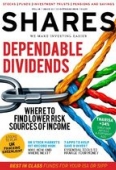Archived article
Please note that tax, investment, pension and ISA rules can change and the information and any views contained in this article may now be inaccurate.
Winners and losers as Brexit stance hardens

Renewed volatility in sterling is helping to reignite interest in stocks which earn a big proportion of their revenue overseas, helping take the FTSE 100 and FTSE 250 to record highs.
A weak pound benefits overseas earners – which is the case for around 80% of the FTSE 100 and half the FTSE 250. It means their revenue and profits are worth more when converted back into sterling. This in turn makes their sterling-denominated shares look more attractively valued when measured against these profits.
The pound lost as much as 6% against the dollar in a matter of minutes on 7 October 2016, a massive move in currency terms. It was attributed to automated trades in a thin market. It is thought computers responded to comments from French president Francois Hollande that the UK must pay a heavy price for Brexit.
Sterling had already suffered a mini-collapse after UK Prime Minister Theresa May said the formal process of leaving the European Union would commence in the first quarter of 2017.
Rhetoric also emerged from the Conservative Party conference which suggested the country may be headed for a ‘hard Brexit’ with immigration controls prioritised over access to the single market.
Research published by investment bank UBS concludes the currency tailwind is priced into FTSE 100 stocks in general. However, it offers an insight into some of the potential winners ahead of the UK’s departure which have yet to reflect the currency boost.
Of the flagged winners we are particularly bullish on power supply specialist Aggreko (AGK), tobacco firm Imperial Brands (IMB), insurer Prudential (PRU) and engineer Rotork (ROR).
On UBS’s losers list are two stocks that we really like, being supermarket Tesco (TSCO) and home emergency repair business Homeserve (HSV). We will keep a close eye on them.
‘In our view, the more the Prime Minister pushes to control immigration the “harder” the leave is likely to be,’ says UBS. ‘The weaker the pound, the bigger the fall in real wages and potentially in domestic consumption,’ it adds.
UBS sees GBP/USD hitting $1.20 by the end of 2017, down slightly from the current exchange rate of $1.23. (TS)
Important information:
These articles are provided by Shares magazine which is published by AJ Bell Media, a part of AJ Bell. Shares is not written by AJ Bell.
Shares is provided for your general information and use and is not a personal recommendation to invest. It is not intended to be relied upon by you in making or not making any investment decisions. The investments referred to in these articles will not be suitable for all investors. If in doubt please seek appropriate independent financial advice.
Investors acting on the information in these articles do so at their own risk and AJ Bell Media and its staff do not accept liability for losses suffered by investors as a result of their investment decisions.

 magazine
magazine









